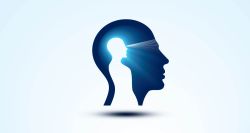
Artificial Womb: Is Japan Really on the Brink of Birth Outside the Human Body?
Bélinda Ibrahim, 2025-12-17 11:00 - Reading : 4 minute(s)
Artificial wombs Science Japan Gestation
Since the summer of 2025, a series of announcements from Japan have set the global media landscape alight. Researchers are said to have developed an artificial womb capable of faithfully recreating the conditions of human gestation. Some headlines already evoke embryos carried to term outside the body, a redefinition of motherhood, or even the end ...










